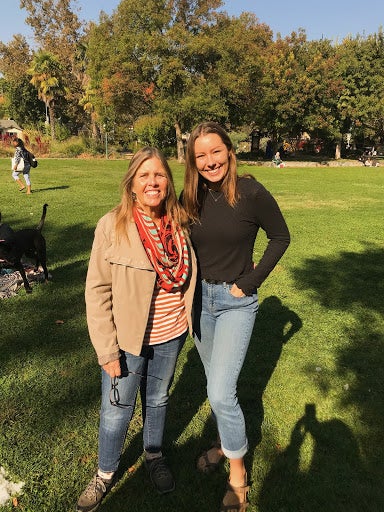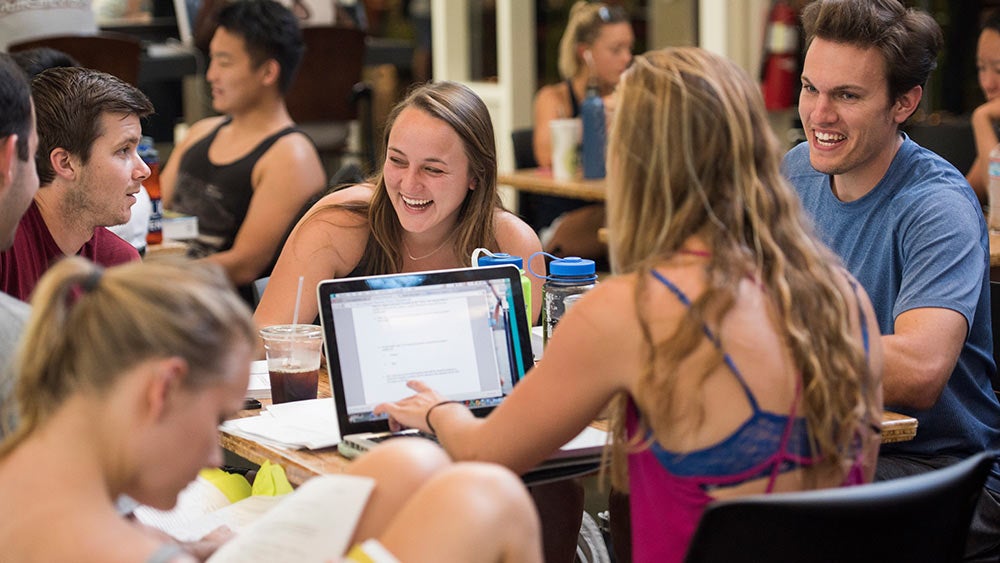For many high school seniors, the college application process can be a scary one. The dreaded writing portion can be especially time-consuming. You have to describe yourself to an application reviewer and hope they get to know you aside from your test scores and course load. Some colleges require long essays; some don’t require them at all. The University of California requires you to respond to four out of eight Personal Insight Questions, and you have a maximum of 350 words for each.
Fear not, though: These are great opportunities to express yourself. The prompts let you describe different aspects of your life instead of feeling confined to writing one impersonal summary. When starting this part of the UC application, I learned a lot along the way.

Prepare in advance: DO!
A rule so simple that it seems obvious. I was in high school once, too, and as a college student, I hate to break it to you, but procrastination still creeps in. The UC application opens on August 1 every year and closes on November 30. That means you have about four months to work on your application. I’m not saying on Aug. 1 you should sit down and knock it all out. In fact, I started looking at my application at the end of October and submitted it in mid-November.
You’re given a large window of time for a reason. This is your college application we’re talking about, so it’s important to take the time to think and pre-plan what exactly you want to write about.
Choose questions based on what you think the reader will like: DON'T!
I'll admit I’m guilty of this one. When I first looked at the Personal Insight Questions I wrote down the four questions I thought would look really good on my application.
It wasn’t until I actually sat down to draft how I wanted to respond to each question that I noticed two were too similar in content. Later in this blog, you’ll see why it’s important to differentiate what you write about. But for the time being, I’ll simply say I went back to the list and picked a question that was a little out of my comfort zone. The new question I chose actually ended up being my favorite response. I felt better making that switch after learning that all of the personal insight questions are viewed equally. Reviewers are looking for thoughtful answers, not necessarily the right answer.

Relate your past experiences to the person you are today: DO!
There are two things to remember when explaining the growth you've experienced facing your challenges:
- If the event happened during your childhood it needs to have had a lasting impact on you.
- If the event happened recently, how have you grown since it happened?
If you're going to talk about a setback you faced — like the time you broke a bone in the second grade — it should describe its lasting impact on you. Either describe its lasting impact or choose another question or instance that aligns better with your current self.
In one of my responses, I wrote about how I fractured my elbow during my junior year and was out for half of the Varsity Tennis season. Through hard work, I was able to place second in the league tournament and made it to CIF with my doubles partner. This was relatively close to when I was applying, and the event had made an impact on my life.
Childhood stories and recent events are great instances where you can show growth. Make sure in either case you make strong connections between the event to how you’ve become the person you are today.
Repeat the same stories: DON'T!
Application reviewers only get 1,400 words to learn about you. This may seem like a lot, but fitting your life into four short responses can be tough. That’s why with so few words, it’s crucial you present diversity in the content. You can do this by picking questions very different from each other or mixing your accomplishments into other prompts. Whatever you choose to do, remember: diversifying is key.
Proofread your work and ask for edits: DO!
When writing my responses I thought they were great, needing not a single revision. I was wrong. When my IB English teacher offered to read my Personal Insight Questions, I thought, “Why not?” I brought her my printed responses and she started marking them up right away.

At first, I was surprised. Did I really do that bad? When she read her suggestions to me, I agreed with every. single. One.
It’s easy to associate constructive criticism with a pejorative. Sometimes we forget others' suggestions help open our minds to things we don’t always think of on our own. That’s the great thing about being human. We all have our own perspectives. If we embrace it for what it is, we can make our work that much better.
DON’T spend your entire essay talking about an inspirational person
This one seems easy on the surface, but it's really hard to avoid once you get down to writing.
When any of us talk about the most inspirational person in our lives it's hard not to want to include all the context that makes them so great. Again, you only have 1,400 words to give reviewers a peek at what makes up your life, accomplishments, and background.
If you spend 25 percent of that time talking about someone else, it’s even harder for them to get to know you. Inspirational people are huge influences on who we are and it’s hard not to give them the credit they deserve. If you are going to reference them, do it briefly and pivot to how that person’s influence has made you who you are.

Yes, the college application process can be scary to start, but it can also be a fun exercise reconnecting with yourself. You get to share your accomplishments and personality through self-reflection. It might seem awkward sharing it all with a stranger, don’t get me wrong. Think of it more like a written highlights reel. If a friend was describing you to a stranger, what parts of your highlight reel would they want to share?
For information about Personal Insight Questions, check out these resources from the University of California’s website, this blog from UC Davis Undergraduate Admissions, and this webpage from UC Davis about Personal Insight Questions.
